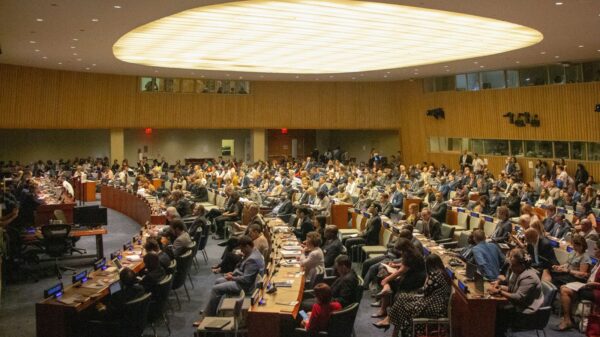Across the nation, researchers have shown members of Black and Latino communities, particularly students, are struggling with their mental health across all academic levels. At Howard University, students and faculty are determined to combat this crisis.
With a newly received $2.6 million grant from the U.S. Department of Education, Dr. Sandra Kalu, an assistant professor in Howard’s School of Social Work, is leading a team of four faculty members who seek to improve the experiences of marginalized D.C. students in public schools.
The program will place 15 Howard graduate students in eleven schools located in low-income and predominantly Black and Latino areas of D.C.
Tasked with the responsibility of educating and serving Black people, Howard is engaged in training and preparing a new generation of educated leaders that intend to improve the experience of Black and Latino students in all academic sectors.
The pandemic exacerbated pre-existing mental health disparities in education as students across the nation returned to school, and many struggled to re-adjust according to a 2022 report by the Brookings Institution.
A report produced last year featured in the Journal of Educational Leadership in Action noted that barriers such as ‘housing insecurity’ contributed to the levels of anxiety and depression in Black and Latino students.
And in 2020, the National Institute on Minority Health and Health Disparities found that stress also developed from racial tension, and ‘perceived racism’ largely influenced the mental health of Black students.
Schai Schairer, a recent graduate of the Howard University School of Social Work and founder of the non-profit Fighting Injustice Standing Together, believes that addressing trauma is the key to improving mental health in marginalized communities.
“Having to name the trauma when you are not in the position emotionally or mentally could be more damaging and harmful, than just providing essential services and effective services to the individual,” Schairer said, explaining many people are unaware they have experienced a form of trauma.
Schairer upheld that one very important aspect of her program, which can be used to establish support, is spoken word poetry.
A 2021 study published in Hospital Pediatrics found that providing hospitalized children with tools to read and write poetry significantly reduced their feelings of fear, sadness, anger, worry, and fatigue. During the same year, Harvard Business Review reported the positive effects of writing and how it helps individuals heal from traumatic experiences.
With vacancies at 95 schools across the District, there is a shortage of social workers at public schools in the nation’s capital, which impacts the quality of service and support available to students.
As social workers from Howard University journey to improve the mental health of Black and Latino students, they will be assisted by a new and excited generation of educators.
“Everyone is a student and everyone can be a teacher,” said Joshua Hughes, a rising senior mathematics major with a minor in secondary education.
The shortage of social workers at public schools increases the demands on teachers as they must be equipped to meet their students’ emotional and social needs. As both an educator and artist, Hughes seeks to demonstrate that “creativity fuels a classroom.”
Mental health struggles in Black and Latino students can be attributed to several sources, and the most common cause of stress and anxiety in post-secondary education is financial hardship.
Mental health is tied to economic security, as many students from marginalized communities also have to work while matriculating through college and paying school-related fees.
The UCLA Latino Policy & Politics Institute found that following the start of the pandemic in 2020, Black and Latino students were more likely to cancel or postpone postsecondary education due to economic hardship.
The inability to adequately cover tuition costs was the most cited reason for educational disruptions among minorities and is an undeniable contributor to stress. The disparities reported reflect institutional barriers that limit opportunities for minority students to use higher education as a viable path to economic security.
Reflecting on his learning experiences, Hughes mentioned his desire to “pay it forward” and his motivation to inspire people to become teachers. “I’ve always had great teachers who saw that I had a passion for wanting to learn. They provided me with as many resources as they could,” Hughes said.
The Latino Policy & Politics Institute report called for increased federal and institutional support to address systemic inequities as the economic and social constraints students of color experience have only increased post-quarantine.
Considering circumstances worsened by pandemic conditions, college students and future educators seeking to improve the mental health of members of Black and other marginalized communities is critical.
Like other Howard students who sought to be educators, Hughes gained experience as an educator in D.C. public school classrooms and emphasized the importance of authentically connecting with students before attempting to teach them.
“Instead of teaching people to be workers, I wish we had a system where we teach students to be thinkers,” Hughes said, discussing what needs to change most in the education system.
Although many Black and Latino students in the nation’s capital continue to struggle with their mental health, modern change-makers in the Howard community such as Kalu, and her colleagues, Schairer and Hughes are passionately working to address such distress, and offer hope for humanity.
Copy edited by Alana Matthew













